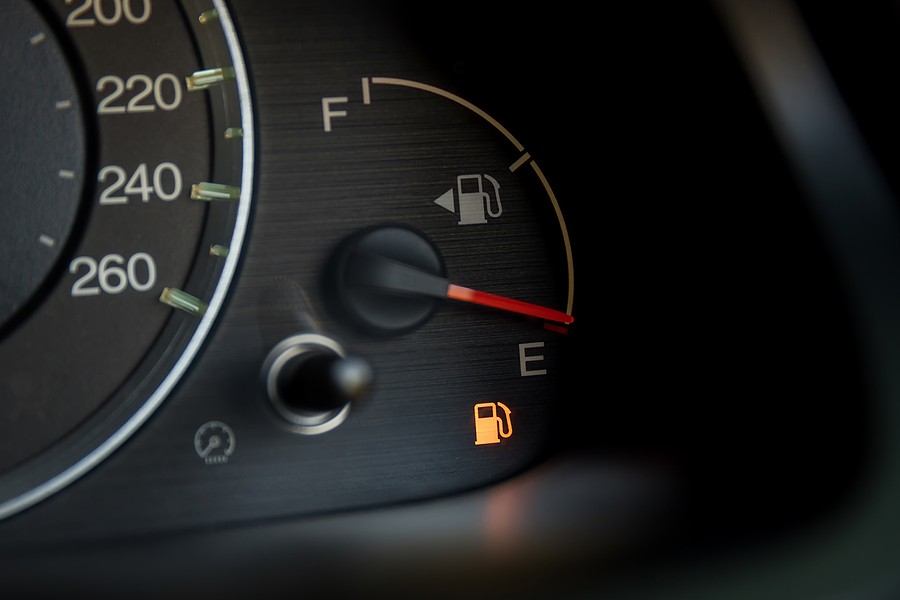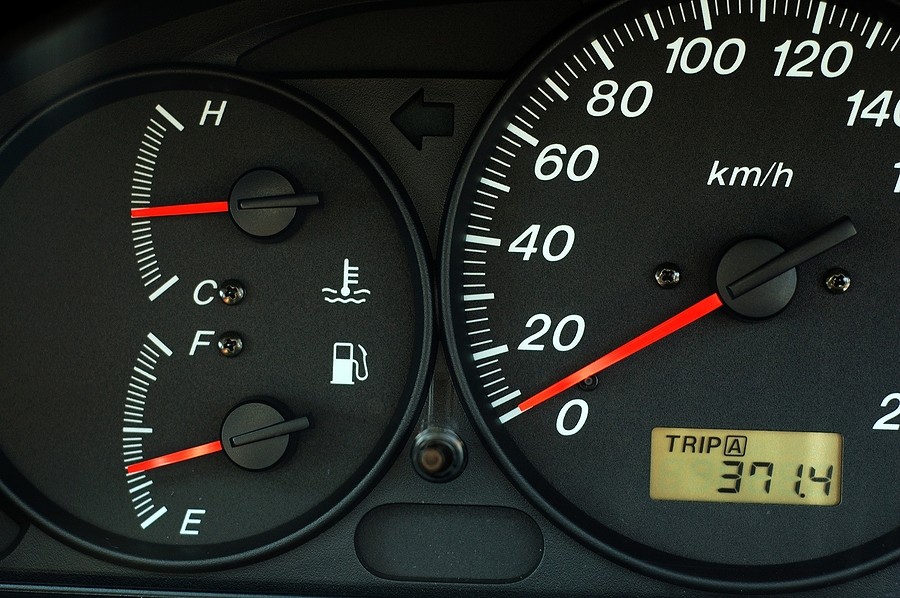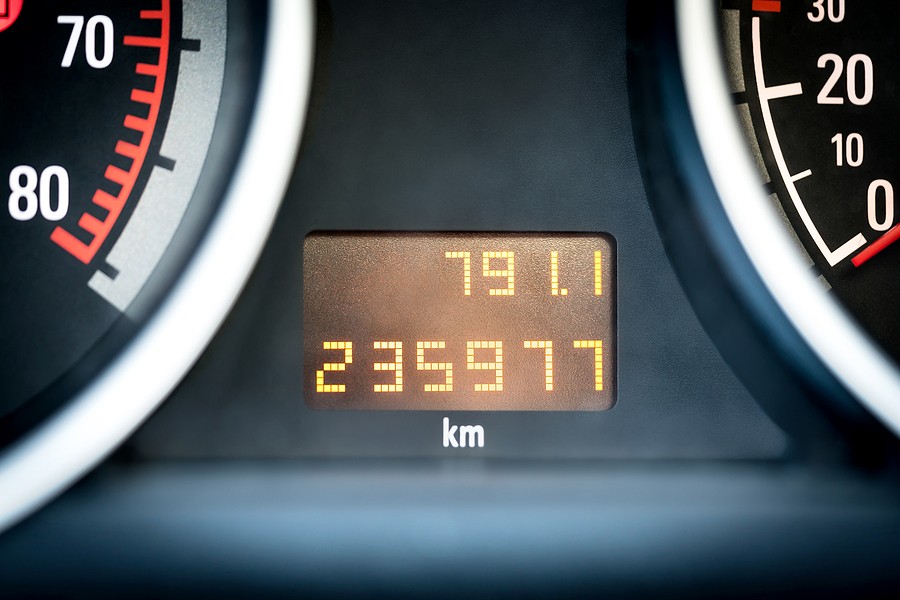If you're wondering, “how many miles does a car last,” the short answer is that vehicles might last between 200,000 miles and 300,000 miles depending on the vehicle model and the driver’s driving habits.
Our cars can be huge investments, and that's why understanding how many miles a car last is a critical piece of information for any driver. There will be a time when your vehicle might break down, and you'll have to start looking for a new car.
By understanding the longevity of your car, you'll have a chance to plan and be prepared for what's next in terms of shopping for a new vehicle and getting rid of your old car.
Furthermore, learning about any recommendations for extending the longevity of your car can help you enjoy your vehicle longer and prevent dealing with unnecessary major repairs at the early stages of the lifespan of your vehicle.
This article serves as detailed guidance on how many miles a car last. It walks you through the concept of car mileage, the main factors impacting your vehicle's longevity, and highlights some examples of how many miles a car last from different brands.
Car age and the concept of mileage
In automobiles, experts use the concept of a mile to represent the vehicle’s age. The mile doesn't necessarily mean years and might not represent the exact age of a vehicle because it depends heavily on how many miles an owner puts towards his vehicle.
For example, an owner of a 10-year-old car might have 100,000 miles, whereas another owner might have a five-year-old car with 150,000 miles. This is because the second owner potentially drove his vehicle more frequently over the last years than the first owner. This applies to people who use their cars for Rd trips or commercial purposes.
There is a link, however, between the vehicle mileage and the age of the car. According to experts, the average age of most generally convenient cars is about 10 years, which might translate into about 200,000 miles.
It's critical for you as a driver to always look at both information and additional information to get a sense of how good the vehicle is. For example, some experts recommend considering the car's history and checking whether the previous owner performed all necessary repairs on the vehicle.
This information is extremely critical because if the owner did not perform the Right repairs, the vehicle might break down prematurely before it reaches the end of its lifetime.
How many miles does a car last?
There is no principle on how many miles a car lasts. However, some experts mentioned that conventional vehicles are expected to last about 200,000 miles. However, it's common to see some other cars lasting about 300,000 miles easily.
Over the years, experts and manufacturers have greatly improved the vehicle’s longevity. For example, they've been introducing new technologies and creating certain parts from specific materials that allow the car to last longer than before. That's why you'll see that some modern cars are expected to last much longer than older vehicles.
Of course, this doesn't mean that if you purchase a new car, it is expected to last more than any old one because there are some additional factors you need to consider, which you will discuss in the following section.

Factors that influence your car’s longevity
Your car's longevity depends on many factors, and these factors can help you determine action items and recommendations on how to extend the lifetime of your car and prevent its premature breakdown.
Here are the most important factors that could influence your vehicle’s maximum mileage:
1. The vehicle type
The first and most important factor determining your car’s longevity is your vehicle’s type. For example, experts indicated that if your car was made somewhere before the 1980s, it is expected to break down faster than newer vehicles.
Also, the brand itself might have a history of car breakage. For example, some vehicles from certain brands are known for damage to the engine and the transmission. Other vehicles might be known for lasting long and not having major problems with these big components.
2. They performed maintenance
Another important factor determining your vehicle is longevity, and the maximum mileage you can give is the maintenance you've put in. In other words, every vehicle has a user manual that you need to check and follow for recommendations on regular maintenance you have to perform every certain mileage.
Ignoring these maintenances can easily lead to shortening the lifespan of your car. Therefore, the mileage of your vehicle will be much shorter than someone else who's put effort into maintaining and keeping up with regular maintenance.
3. The vehicle history
The less important thing you need to consider when analyzing the maximum mileage your vehicle can put in the history of the vehicle. For example, if you purchased a car involved in a major car accident and then was repaired, chances are that this vehicle will not last as long as you expect.
That's why automotive experts always recommend checking the vehicle’s history reports every time you purchase a used car because it gives you a hint about any previous major conditions that the vehicle was involved in, which also decides on the maximum mileage your vehicle can put.

At what mileage is a car considered too old?
Although we mentioned that vehicles are expected to last about 200,000 miles and sometimes 300,000 miles, this doesn't mean that vehicles will behave well throughout this mileage. In other words, if you're planning to purchase a used car, it is important that you keep an eye on the mileage to determine whether it's too old or not.
Most automotive experts use the threshold of 100,000 miles as an important number when purchasing a used car. When the vehicle reaches 100,000 miles, major problems in the biggest components are expected. For example, you'll start seeing some check engine lights illuminating at this mileage, and you'll notice that the engine for the transition is not behaving as it should.
More importantly, you may get into situations where they have to install no big components, which means thousands of dollars on repair, and that's what you want to avoid.
Other factors to consider if you're planning to purchase a used car and focus on the mileage. For example, some vehicles are known to put much mileage and save gas.
These vehicles are expected to have high mileage than others. On the other hand, you might see some cars that use much gas with much lower mileage in the used car market. This doesn't mean that these vehicles are in better shape because their owners didn't drive them much.

Are 200,000 miles too much for a car?
It all depends. As we indicated before, many things go into evaluating whether the mileage is too much on a vehicle. For example, there might be a 200,000 miles car with good history and where the owner paid great attention to regular maintenance. This vehicle might be in better shape than another car with only 100,000 miles where it was involved in an accident, and the owner did not perform the regular maintenance properly.
As they're all thumb, I don't want experts still recommend staying away from vehicles approaching 200,000 miles because these cars are expected to have major problems that will cost you much money to fix.

Can a car last 500,000 miles?
Believe it or not, some vehicles last more than 500,000 miles in certain brands. However, this doesn't necessarily mean that the car is in good shape or can be driven properly.
As the vehicle approaches more than 100,000 miles, you'll start noticing some major problems requiring regular visits to the mechanic shop, and it starts giving a headache to every driver. Imagine what could happen as the vehicle approaches 500,000 miles.

What Car has the most longevity?
A recent study analyzing more than two million vehicles found that the Toyota Sequoia vehicle reached the maximum mileage among others in the same category. This vehicle lessened a little less than 300,000 miles and was still in good shape.
There are some considerations to remember and other ad biases you should consider when ng vehicles. For example, there should be some consideration and attention to how well these vehicles were maintained over the lifespan, along with the different environmental conditions in which these vehicles were involved.
More specifically, if a vehicle is driven in colder environments, the harsh environmental conditions might impact the vehicle’s longevity and cause it to suffer from internal damages. Similarly, if you're driving a car in a very hot environment, this temperature might impact the engine’s longevity and other components if it exceeds a certain threshold.
Tips for making your car last longer
Now you know how much to expect on your car in terms of mileage. The next step is to learn some tips to help you extend the lifetime of your car and enjoy the maximum it can provide you. Here are some expert recommendations:
1. Check the battery regularly
The battery is one of the most critical components in your vehicle that could fail often, and would it fails; it might impact additional components, which could eventually impact the longevity of your car.
That's why automotive experts recommend and remind drivers to check on the battery regularly and replace it when it reaches the end of its lifetime. Typically, your car battery is expected to last between three and five years, and once you're getting close to these numbers, you have to check on the battery and replace it just in case.
2. Keep up with replacing the filters on time
Your vehicle contains many filters, and inexperienced drivers might need to pay more attention to these components. Therefore, it is critical that you check on the filters and replace them whenever needed. There should be recommendations on your vehicle’s owner’s manual about how often you should replace the filters by filter type and location.
3. Improve your driving habits
Did you know that your driving habits can significantly impact your vehicle’s lifespan? For example, if you hit the brakes fast and use the different components harshly, it could damage them and make your vehicle break down prematurely.
Sometimes it can be hard to determine whether your driving habits are the best, and that's why we typically recommend having another person in the car who can provide you with some feedback about your driving experience and habits.
4. Check the spark plugs often
The spark plugs are also some important components that could feel prematurely and lead to much damage impacting a big component like the engine. That's why you need to switch to higher-quality spark plugs or keep up with the required maintenance schedule and replacement.
5. Top up the fluids
Similar to vehicle filters, there are different types of fluids inside every component in your car, and each fluid needs to be in the same right quantity and quality. That's why you always need to check on the fluids, top them off if they're dropping below the minimum limits, and replace them if they're not of good quality.
6. Don't ignore the tires
The tires are critical because they are the first components interacting between your vehicle and the road. If the tires are not in good shape, they can easily lead to some vehicle damage and impact other components if not impacting your safety.
That's why you must keep up with checking the tires every time and inflate them to the proper level depending on the season. Depending on your manual's recommendations, you also need to rotate the tire between now and then.
7. Follow the recommendations in the vehicles owner’s manual
In addition to the specifications mentioned recommendations, your vehicle’s owner’s manual should have some additional details on regular maintenance that you have to keep up with to protect the vehicle and keep it last at the maximum mileage possible.

Final thoughts
Understanding how many miles a car last is important information to help every driver plan ahead and determine when the next step is to switch to another vehicle. This article provided all the details to help you determine the car’s average lifespan and longevity.
If you're planning to purchase a used car, you need to understand the typical lifespan of cars. You should also only purchase cars within 100,000 miles to avoid headaches.
Do you have an old car? Do you need help finding a potential private buyer? Does your car have much mileage? You'd better reach out to Cash Cars Buyer today! We guarantee to buy your car despite its type, condition, or mileage. Call us at 7737914363.



